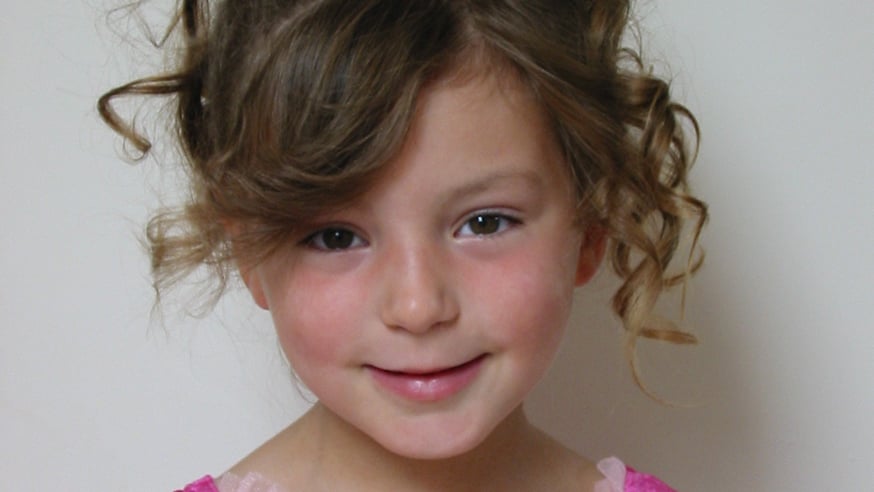Make a donation

Abbie Mifsud was just six years old when she died of DIPG — a rare and inoperable tumour in her brainstem.
Some 80 per cent of children under the age of 15 are already cured of cancer — vastly improved from just 30 per cent in the 1960s. But 20 per cent do not survive. There is an urgent need for new treatments for children with aggressive and hard to treat cancers.
The ICR is an internationally leading research centre for the study of childhood cancers. You can read more about our work on our childhood cancer research page.
Our scientists are already working to develop kinder, tailored treatments for children. We want to make sure that they receive treatments that are the best possible match for the specific genetic alterations in their cancer. This will mean that more children survive and that children are less likely to receive unnecessary treatments that could leave long-term damage.
We have identified multiple genes associated with aggressive forms of childhood cancer with poor outcomes. With this knowledge our scientists are now identifying and developing treatments to effectively target these cancer-related genes. One of our recent developments is a new genetic test helping to personalise treatment for children with cancer.
Meet the researchers working on childhood cancers
Scientists including Professor Mel Greaves, whose work has underpinned new treatments for childhood leukaemias, and pioneered new understanding about its cause. His team are now working to see if the most common type of childhood leukaemia can be prevented from occurring in the first place.
Professor Louis Chesler is working to understand the biology of children’s cancers and use that information to discover and develop new personalised approaches to cancer treatment. His research involves the three most common solid tumours of children – neuroblastoma, a nerve tumour, rhabdomyosarcoma, a muscle tumour, and medulloblastoma, a brain tumour.
Professor Chris Jones leads our Glioma Team, finding the genes which drive the development of childhood high grade brain tumours, including glioblastoma and diffuse intrinsic pontine glioma (DIPG).
Professor Janet Shipley is investigating ways to improve the treatment of children, teenagers and young adults with sarcomas that have a poor outcome, including rhabdomyosarcoma, desmoplastic small round cell tumours, liposarcomas, Ewing sarcomas and through collaboration with Professor Chris Lord, synovial sarcomas.
However, we need to do much more. We need to continue to build on our research in order to achieve the best possible outcomes for all children. We could not continue our work without the generosity of our donors, including parent-led charities who generously support our work in memory of their children.
If you would like to get involved and support our childhood cancer research, please contact Thomas Bland, Deputy Director of Development (Trusts and Corporates), by phone on 020 8722 4200, or by email.
You can follow the ICR on Twitter for regular updates on our work.
Make a donation